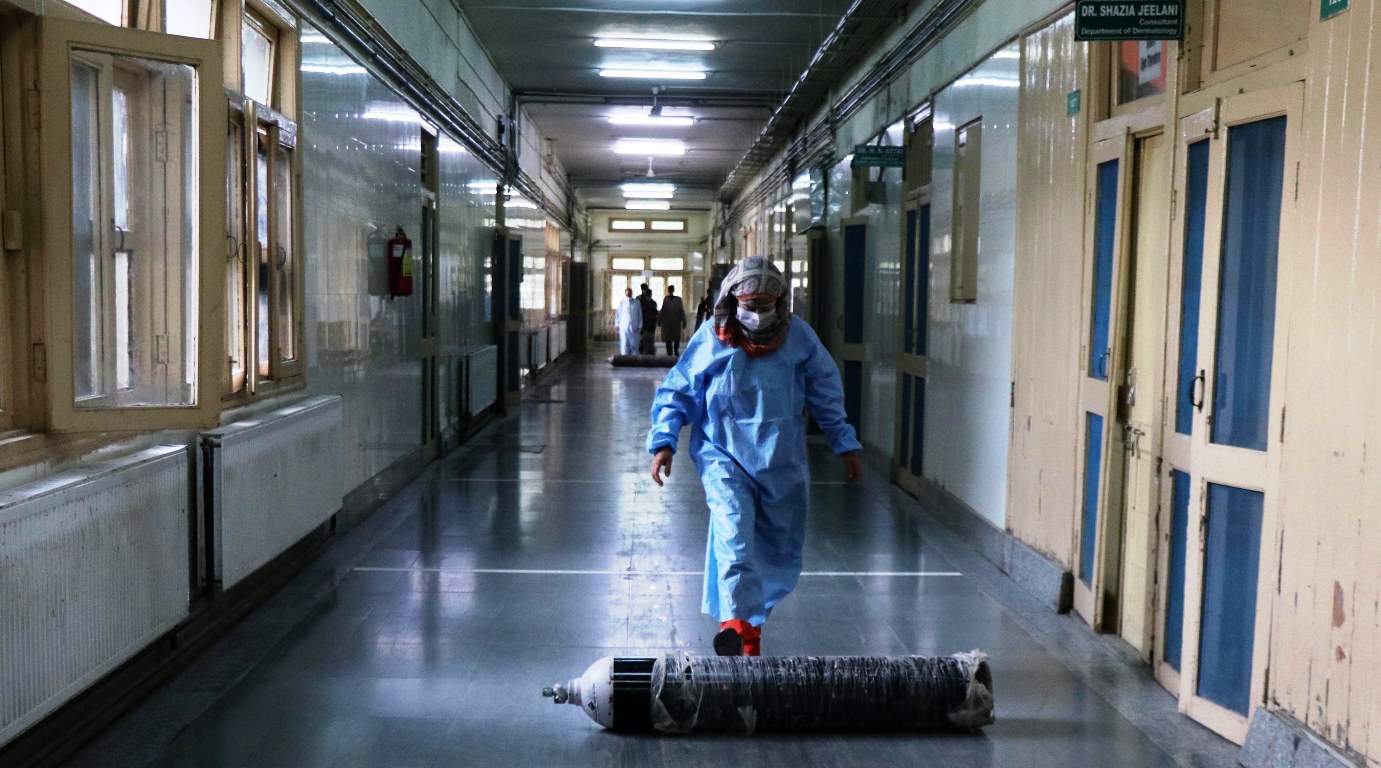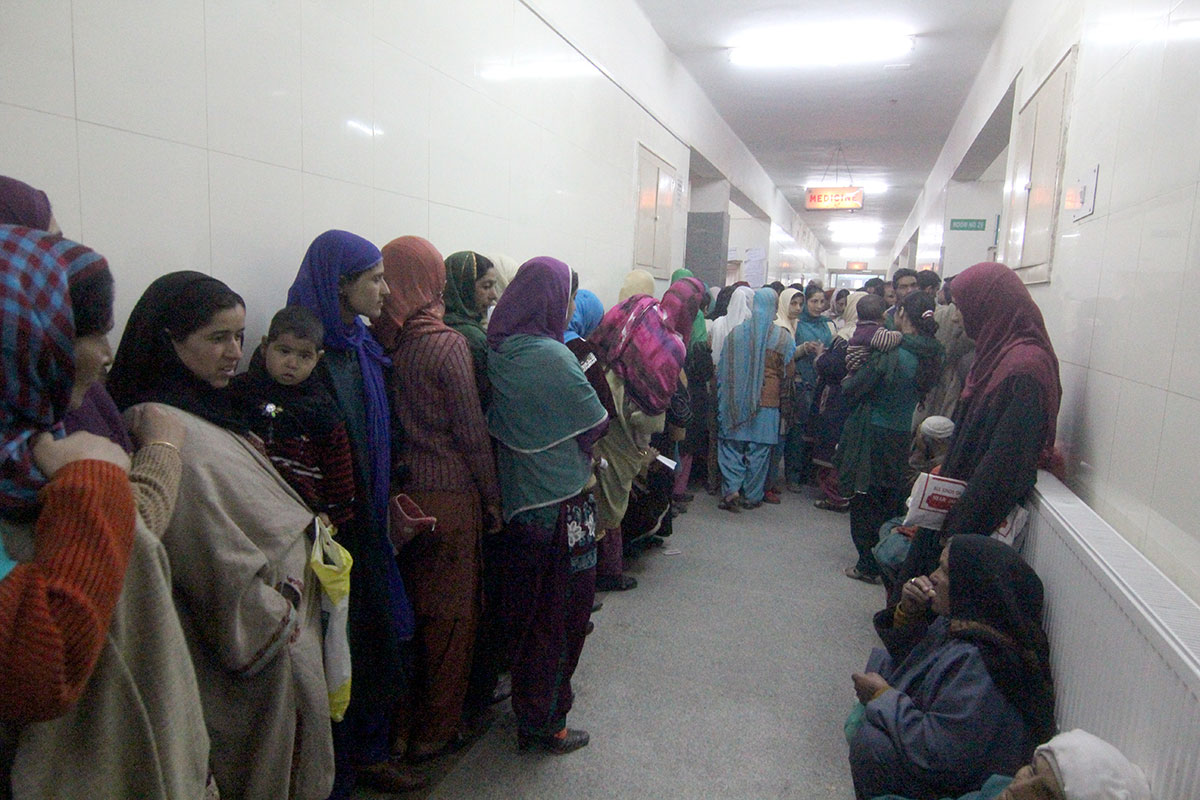by Masood Hussain

A Great Man
By around 2 am, a car is in great speed comes to a grinding halt at the main gate of the Emergency. No sooner did the driver disembark with the little child he was carrying driving to the hospital, a two-wheeler with equal speed stopped. A man and a woman almost rushed to the car in such a way that I feared that the car driver might have put to them some loss in the middle of the night. That was not the case. The woman instantly pleaded for him to drive a kilometre from the hospital and help them drive their seriously ailing father to the hospital. “We just have a scooter and my father is so ill,” she pleaded.
The car driver, thought for a moment, enquired about the distance and told his daughter: “Doll, you just manage this ache for a moment, we will go in a jiffy and get their father.”
Almost 20 minutes after, the man drove the old man, his son and his daughter to the hospital. He had severe breathing issues and 10 minutes later he was on oxygen. Then only did the car-owner take his souneh goubur to the doctor – great father, great daughter.
Three Deaths
Normally, patients are driven to the territory care hospitals when the families fail to manage them. They are critical at the time of arrival so not everybody survives. For the night I spent in SMHS’s medical emergency ward – one of the busiest despite the Covid19, three deaths took place, a young man from the city and two women from the periphery.
In all three cases, it was apparently cardiac arrest as I saw the doctors making desperate attempts in all three cases to revive.
What is peculiar to the Kashmir hospitals is that for one patient, there is a crowd of attendants. Yes, patients do require an attendant but not a procession.

The massive presence of the attendants did not go well in the three cases. They did not beat the doctors thought. But they created a situation in which the care of their patients was impacted. In one case the attendants of other patients intervened much ahead of the scene would get created. In two cases, however, nobody could help.
While the doctors were making efforts, one attendant of one patient lost his consciousness and fell down and he required another doctor that obviously had to be shifted from his own mother. In both cases, the families converted the ward into a huge mourning hall. It took almost half an hour for the medical staff and the attendants to plead to them that they have a right to mourn but their high-pitch wails are impacting the health of other serious patients in the ward.
I am not taking a moral stand on this but I wish to suggest that attendants should somehow behave maturely at the time of these tragedies. After the two bouts of the massive mourning, the oxygen supply of the ward witnessed the peak demand. Interestingly, the family that was hugely nosy in wailing the departure of their mother, spent the rest of the night in the corridor talking around the corpse.
Moral Cops
Slightly past midnight, I saw two young men dragging another youngster into a room adjacent to the office of the Chief Medical Officer. They took him in and closed the door. They were apparently beating him. Moments later, a young girl was summoned in also.
Preliminary details suggested the two were caught talking in isolation, remember talking, nothing more. They were attendants of two patients admitted in the surgical and medical emergency wards. Both were rural folks. I thought the cops were in action and they were ensuring nothing bad happens around.
Half an hour later, another boy and another girl was summoned and apparently reprimanded. To me, it was not so abnormal.
Moments later, I saw the girl from the latter couple almost shouting at one of the “moral” cops in anger and soon she took the boy with her and told them that they are legally wedded, husband and wife. Well before they would say anything, she almost took her shoe in hand and was about to beat one of them. I still found it not so abnormal, taking it as ‘just a misunderstanding’.
Soon, I saw one of the ‘moral’ guards talking in separation with the girl from first paid. He was seeking her cell number and she gave it. That was when I found it is not all right and they could not be cops.
A simple investigation suggests they were self-styled morality imposers, who, in their drive during late hours pose question marks over the credibility and integrity of youngsters, both men and women. It is possible that some people could be taking advantage of the desertion of outer premises and dim-lit spots around F-Block but that requires better lighting and not “raids”. I do not know why they were seeking cell numbers from the young lady and I have no idea who they were. I did see the young lady sobbing and crying. Employees, I talked to, said they are doing small jobs within and around the hospital but are not from staff. I wanted to talk to them but they simply could not be seen around.
Too many nights have passed and they might be home. I do not know why the first pair, caught talking, was a dam good smart pair, perfect for each other. I wish they meet again forever.
Night Business
It is the harshest period of winter, the Chilai Kalan. People who have spent nights in the hospitals do know that there are facilities for getting medicines for a while of the night.
But the casualty area of the premier SMHS Hospital is alive literally because of two vendors. One sells tea and another water and other basic requirements for the attendants.
I did not ask them their identities but both of them said they are there for last more than 14 years. They set up their shops after 10 pm and serve the people for the whole night. The water-seller finishes his product basket by around 4 am and then goes home in the neighbourhood.
For the Chaiwalla, the stay is longer. For the whole night, he sells sweet tea, the Lipton, and soon after the Fajr prayers, he started selling the Nun Chai. He has a perfect supply set-up. Fresh bread is delivered to him early in the morning and honestly, this might be the spot where the Nun Chai is available first in Kashmir, right now around 6 am.
The two spots near the Casualty Gate remains busy with attendants, who smoke around, interact, have tea and return. The two have started an Allaw type fireplace using a tin box that helps people stay warmer.
Both of them said they work during the nights only. They sleep during the day.
Sleep Debt
One of the many bad habits I have is sleeping late in the night. So it has been a moral dilemma for me that if at all, by any chance, I hear Salaatu Khayrun min an-nawm (prayer is better than sleep) from the Muazin’s pre-Fajr call, the Azaan, how should I react. It has been very rare that I hear the Azaan because my sleep has been a dream-free-deep one. But whenever I hear it, it is almost impossible that I would not get up for timely prayers.
Between the gap of medical and surgical emergency of SMHS is some space that people have been using for prayers. So when I heard the Azaan, I quickly joined. What shocked me was that on one side of it people were sleeping. It was literally in their ears that Muazin was calling – Salaatu Khayrun min an-nawm and they were in the praying space itself. Neither they felt disturbed nor did anybody interrupt their sleep. Perhaps they were too tired in managing their patients that they were oblivious of the time-space matrix.
Crowded Welcome
A night in a hospital is no sure barometer of the functioning of a major hospital. There are, however, certain things, which are obvious. For instance, in the first entry of the emergency, three huge crowds were around the young doctors, mostly residents. At the peak of Covid19, it should have been made possible to have more doctors and give them enough space to manage some kind of social distance. They were managing it well but they had no second option. I doubt there may be a doctor who will not have his bout of infection this season.
I did not find any issue in the ward. All the doctors functioned like robots, so did the nursing staff. Paramedics assigned the roles for diverse test basket was in place and I did not see anybody in any conflict with any doctor or a patient. Everything is not as perfect as I saw it. Maybe I had left the fault-finding goggle at home!















